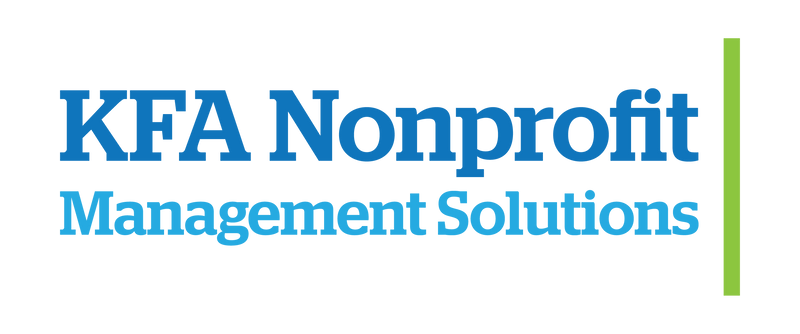When the Deadline Moves: Why We’re Booing, Not Celebrating
At around 2 o’clock Monday afternoon, we were poised to hit “submit” on a $2 million grant proposal we’d been working on for a few weeks. We were on standby for one last review pass, and everything was ready to go - ahead of schedule, no less. Then, the notification popped up: the application platform had been updated, and the deadline was extended another week.
We weren’t celebrating.
When you work in grants, you learn to savor those rare moments when everything comes together early. We had drafted, reviewed, refined, and finalized a multi-million-dollar proposal ahead of schedule. The work was tight, the alignment was strong, and the internal pre-review scored it as a point-perfect submission. We were ready to cross the finish line. But when the finish line moves, it doesn’t always feel like a gift.
The “Gift” of More Time (and Why It’s Not Always Welcome)
To outsiders, a deadline extension sounds like good news. More time to polish, right? But seasoned grant professionals know that extensions often mean one thing: the funder isn’t getting enough proposals.
A couple of weeks earlier, we’d attended the pre-application webinar alongside just two other proposers. That’s the kind of competition we love. It’s not about being overconfident - it’s about recognizing a strong fit between project design and funder priorities. Fewer competitors usually means the program requirements are demanding, and not every organization has the capacity to pull together a compliant, high-quality submission.
So when the funder pushed the deadline, we could almost hear the collective sigh from their review team. They were likely worried about a too-thin applicant pool - maybe just a handful of submissions trickling in 48 hours before the deadline. Extending the deadline is their way of widening the net. Unfortunately for early submitters, that means more competition.
The Psychology of Deadlines
Deadlines are powerful motivators in the grant world. They shape how organizations allocate time, focus energy, and make decisions. When a deadline changes mid-cycle, it disrupts that rhythm.
An extension can also subtly shift expectations. Teams that were prepared to submit may second-guess their readiness. Reviewers might assume applicants had “plenty of time” and raise the bar for what they consider polished. And internally, project partners sometimes interpret an extension as permission to tinker - introducing the risk of scope creep or misalignment at the eleventh hour.
In our case, we’ll take a day or two to re-read a section and maybe strengthen a data point, but our proposal is already submission-ready. The discipline of finishing early doesn’t just reduce stress - it protects the proposal’s integrity from the temptation to over-edit.
What a Deadline Extension Signals
Behind every deadline extension is a signal about the funding landscape. Sometimes it’s logistical - an online portal glitch, a government shutdown, or delayed guidance. Other times, it reveals something deeper about the funding environment:
-
Complexity: If few applicants can meet the requirements, the funder may extend to encourage broader participation.
-
Capacity gaps: Smaller nonprofits may be interested but lack the infrastructure to assemble the required documentation in time.
-
Market mismatch: The funding opportunity might not align well with community needs or existing program models.
In this case, the extension suggests that the opportunity - though generous - may be more complex or administratively demanding than most organizations anticipated. For those of us who live and breathe grant compliance, that complexity is our comfort zone. It’s where preparation and systems make all the difference.
Why We Still Like Our Odds
Even with a wider pool of competitors, we remain confident. The proposal meets every requirement precisely, from budget alignment to evaluation metrics. Our logic model is airtight, the community partnerships are genuine, and the need statement is both data-rich and grounded in lived experience.
That combination - technical accuracy and authentic storytelling - is what consistently separates competitive proposals from the pack. You can’t fake readiness in a week. When you build a project carefully, with stakeholder input, clearly defined outcomes, and a realistic budget, reviewers notice.
We’d have preferred to be the lone proposer, of course. But even with extra entrants, strong proposals rise to the top. The extension may create more noise, but quality still carries weight.
Lessons for Nonprofits Navigating Moving Targets
If you’re a nonprofit leader or grant writer, here are a few takeaways the next time a deadline shifts under your feet:
Submit anyway. If your proposal is ready, don’t wait. Submitting early avoids last-minute portal glitches and shows professionalism.
Don’t over-edit. Extra time can tempt you to rewrite sections that are already solid. Minor refinements are fine - major structural changes rarely improve a proposal.
Use the week strategically. Instead of rewriting, prepare your post-submission follow-up: update your grant calendar, plan internal debriefs, or start your next concept paper.
Stay confident. A deadline extension doesn’t change your project’s value or alignment. It simply opens the door for others to catch up.
Final Thoughts
We’re still submitting this proposal with confidence - and maybe a little impatience. For us, the work is done, the case is strong, and the mission is clear. Whether the deadline ends today or next week, we’re proud of the effort and precision that got us here.
So no, we’re not celebrating the extension. We’re booing, but good-naturedly. Because in this line of work, being ready early is its own quiet victory - and one worth cheering for, even if the finish line just moved a little farther down the road.
Wondering where we found a multi-year, multi-million dollar grant in this funding landscape? We wrote about it a year and a half ago.
